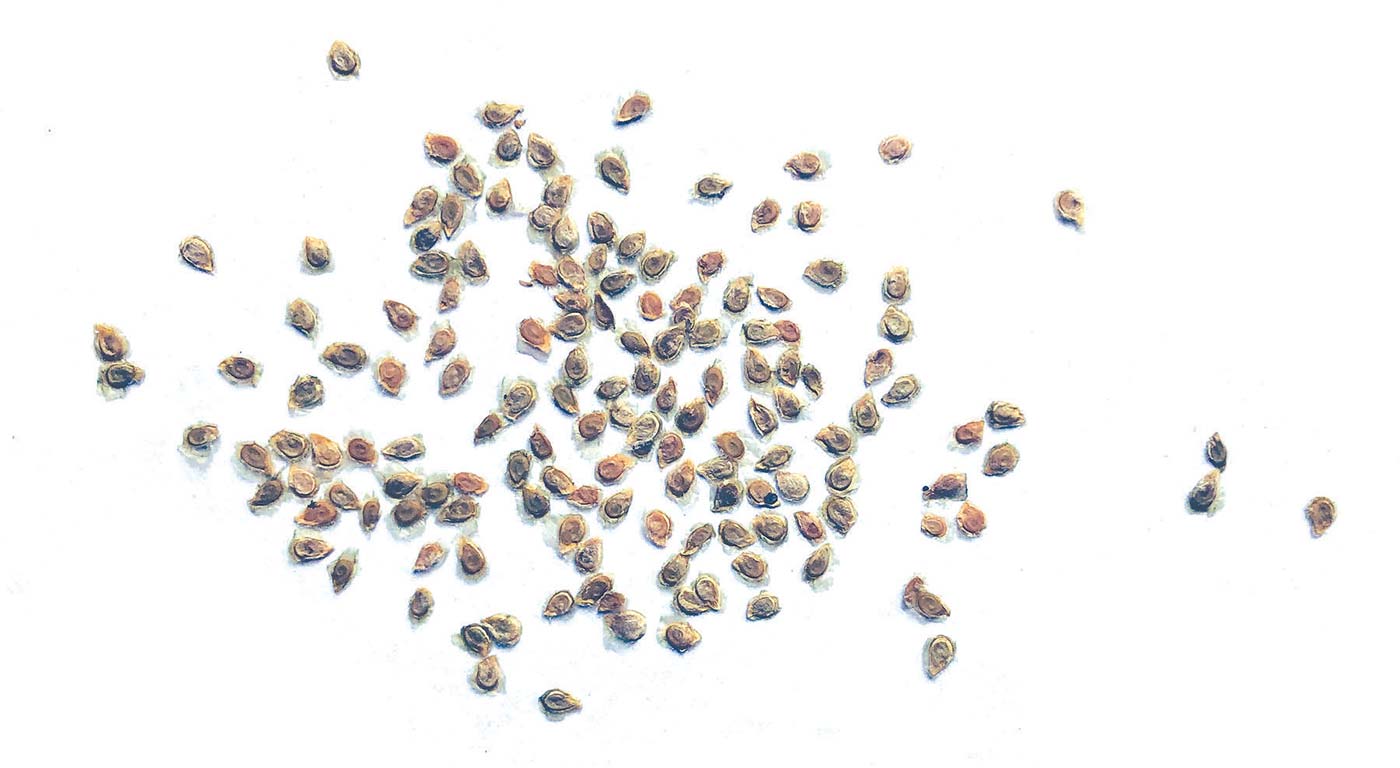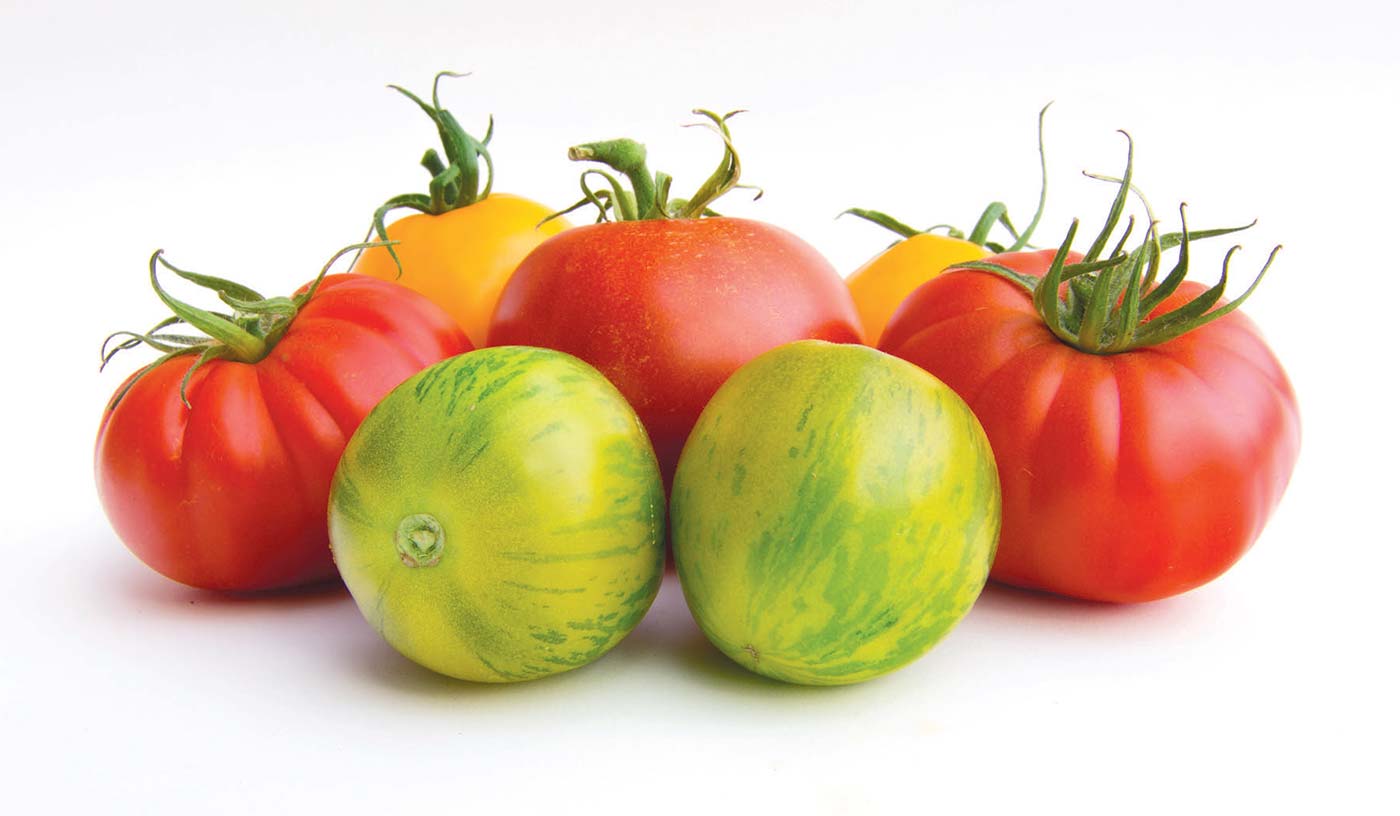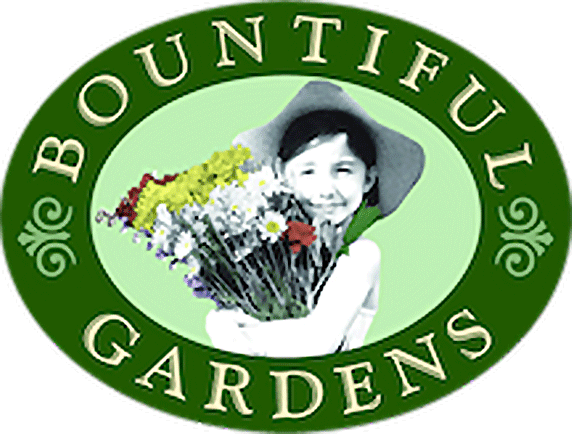Why Heirlooms Matter
Dining out, we’ve all noticed common menu items paired with attractive descriptors. The term “local” mushrooms indicates the ingredient has traveled a shorter distance to our plates, implying superior freshness and the support of a nearby producer. “Faroe Island” salmon is not just another piece of fish; it was raised in a unique aquaculture prioritizing animal welfare.
But what are “heirloom” tomatoes? Yes, they are known for their superior taste, but the term hints at something else. Heirlooms needn’t be local and don’t necessarily come from a unique location, though many are and do.
The heirloom (fruit, vegetable, or flower) is unique because of the production and quality of its seed.
The What and the Why of Heirloom Seeds
Heirloom seeds are produced by plants pollinated by natural methods, such as wind, insects, or birds. This is called open pollination, and it creates seeds that when grown, will closely reflect their parents’ traits.
Open-pollinated seeds can be shared freely—they need not be purchased from breeders or patent holders. This keeps their genetic material in the public domain and inscribes them in our cultural record, whether in commercial history, in a history of a family or culture, or in modern lineage.
While there is widespread agreement on how heirloom seeds are produced—they are open pollinated—the exact definition of what qualifies as an heirloom seed remains contested. All open-pollinated seeds are not heirlooms, but all heirloom seeds are open pollinated.
Heirloom seeds have history, be it a family or cultural history, a commercial history that precedes the Green Revolution, or even a modern history that is still being written.
One case in point is the morning glory plant called Grandpa Ott, a vividly violet, open-pollinated flower whose seed was brought from Bavaria in 1844 by the parents of Baptist Ott, the flower’s namesake. For three generations, the Ott family grew and saved seed of this annual flower on their Iowa farm. Diane Ott Whealy and her husband, Kent, the fourth generation to steward the morning glory, named it in honor of Baptist.
Grandpa Ott’s detailed provenance makes it a true heirloom, not simply an open-pollinated plant.
Seeds passed down through several generations of a family or brought from other countries present a deep connection to our shared pasts and culinary histories. The Grandpa Ott morning glory is a prime example of a family or cultural heirloom. After being gifted seeds by Grandpa, the Whealys became so captivated by the story of saved seeds that they founded Seed Savers Exchange in 1975, which today stewards thousands of rare seeds in its bank (see sidebar).
Other categories of heirlooms exist in addition to the family or cultural varieties. Commercially historic heirlooms are defined as open-pollinated seeds that were in production prior to the 1950s when plant hybridization became wide-spread or in circulation for at least fifty years.
Do you want to explore new varieties? Perhaps grow sesame seeds like Thomas Jefferson grew at Monticello? Exploring commercially historic heirlooms can reveal new plant varieties, or even species, for your garden. When Jefferson grew this “new crop” in the early 1800’s, sesame seeds were already being grown in Georgia, having arrived from Africa by enslaved Africans. Jefferson, who used enslaved people to run his garden, was a relentless note taker and left us a record of many historic heirloom varieties.
Sesame seeds can also be considered a family or cultural heirloom. Seeds brought from other countries, either by force or by choice, present a deep connection to our shared pasts and culinary histories even after they are appropriated as a commercial crop.
Modern or created heirlooms reflect contemporary efforts to mimic what was done by our ancestors, namely saving and selecting seeds that have desirable traits. When these open-pollinated seeds come with a description of their breeding history, they are modern heirlooms in the development process.
(Conversely, non-heirloom seeds are often produced by a plant-breeding method called hybridization. Seeds produced from hybrid plants will not resemble the parent plant and may not carry on desirable traits. Hybrid seed cannot be saved from year to year. It must be purchased each growing season from the company or breeder that produces the seed.)
Growers who have committed to the Open Source Seed Initiative (OSSI—see sidebar) have pledged that the seeds they produce are in the public domain and may never be restricted in their use. Farmers and gardeners are free to save seeds from these plants, which adds new genetic resources that expand our food chain.
All three classifications of heirloom seeds empower farmers and gardeners to promote diversity in our food systems—a shift that will help us move away from dependency on a homogenized food industry.
Just as importantly, heirloom seeds bring beauty as well as nourishment to our home landscapes and our tables; the sesame plant’s lilac tubular flowers are as lovely as its seed is nutritious.
SEEDS PASSED DOWN THROUGH SEVERAL GENERATIONS OF A FAMILY OR BROUGHT FROM OTHER COUNTRIES PRESENT A DEEP CONNECTION TO OUR SHARED PASTS AND CULINARY HISTORIES

SOURCES OF HEIRLOOM
The Jefferson Monticello website contains a wealth of information about the plantation and times of Thomas Jefferson and a bounty of heirloom seeds for sale. monticello.org
Seed Savers Exchange offers a catalog as well as a free seed-swapping program. Interested in saving seed? Resources abound on the website. seedsavers.org
Open Source Seed Initiative (OSSI) provides information on all things seedy. In addition to a podcast called Free the Seed, they provide links to seed companies that have taken the OSSI pledge, many of which are breeding or selling modern/created heirlooms. osseeds.org
Truelove Seeds is a small, Philadelphia-based seed company committed to community food sovereignty, cultural preservation, and sustainable agriculture. Information about how to save seeds is included on the website. trueloveseeds.com
Wild Garden Seed is known for its farm-original varieties of open-pollinated seeds and can be considered a seller of modern or created heirlooms. wildgardenseed.com
Johnny’s Selected Seed sells both heirloom and non-heirloom seeds. The online store offers seeds and volumes of information to commercial and home gardeners alike. johnnyseeds.com






